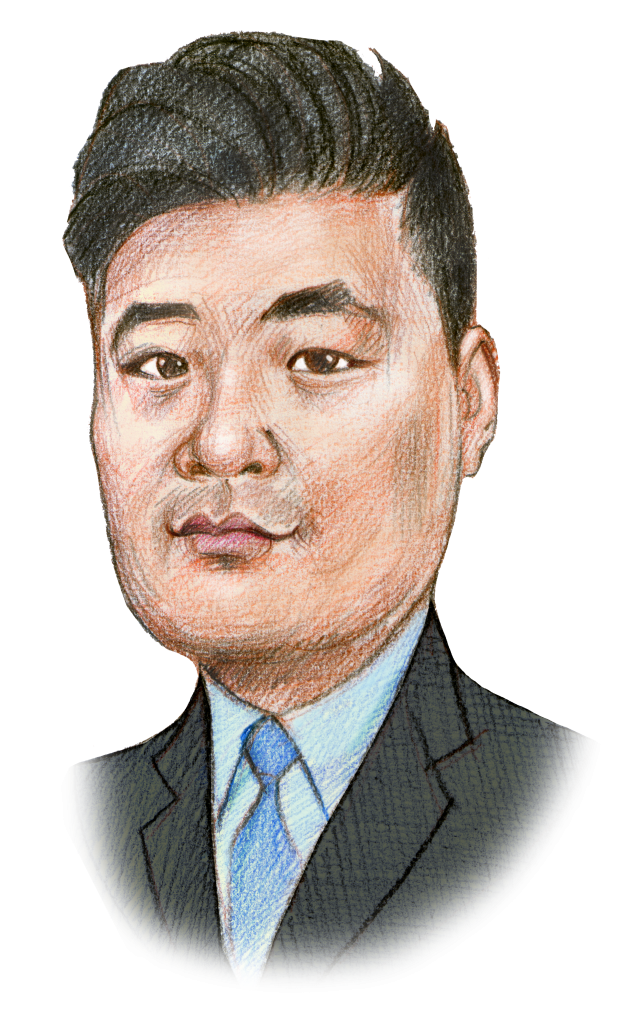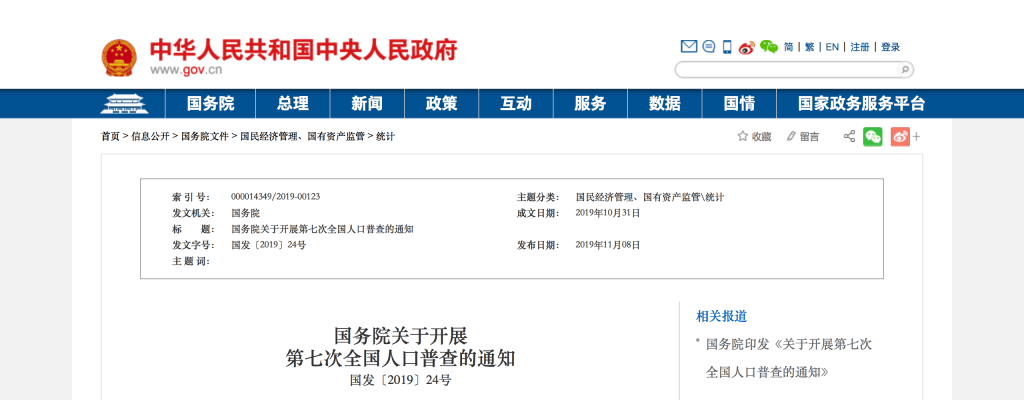Why China’s Investment Migration Market Hasn’t Recovered (And Probably Won’t for a While)

Mr. Lu’s Tea Leaves
With Luc Lu
A seasoned veteran of the Chinese RCBI industry keeps readers abreast of overarching trends in the world’s biggest investment migration market.
Though China appears to have taken a global lead in terms of pandemic recovery, China’s investment migration market is still nowhere near recovery. In recent industry summits, the most frequently asked question has been: Why hasn’t China’s investment migration market rebounded yet?
Not only has there been no application volume recovery; there is nothing to indicate that a recovery is even beginning, despite a grand push among the big migration firms to launch marketing plans aimed at making up for lost revenue during the pandemic (catering to the presumed pent-up demand) most investment migration agencies in China have enacted ambitious marketing plans to make up for the losses caused by the pandemic in the first half of the year.
A cursory glance at search results on Baidu are illustrative: Searches for the keywords “investment migration” [ed: 投资移民] immediately render display ads for the well-known Chinese agencies. They’re spending as much money on online ads as they did in the past, if not more.
So, what are Chinese investor migrants waiting for?
The fact of the matter is that the Chinese investment migration market’s stagnation has nothing to do with the pandemic at all.
The real problem plaguing China’s investment migration market is the sword of Damocles hanging over the head of HNWIs in China. The two edges of the sword stand for mobility and privacy, respectively.
The first edge of the sword – Mobility constraints
In simple terms, Chinese applicants, at present cannot currently achieve global freedom of movement in any practical sense. There are three chief reasons for this.
Imperiling the hukou
First is the fear of losing one’s hukou (household registration). Suppose you have acquired permanent residency in another country and plan to settle there. This would be grounds for cancelling your hukou.

The importance of the hukou to a Chinese is no inferior to that of citizenship because having a hukou means you have entitlements to national and local welfare schemes (say, public medical insurance, education, pensions, and so on) and the right to invest in a particular Chinese locality (especially true for property investment). For an overwhelming majority of Chinese investors, property investment takes up the lion’s share of their portfolio allocation. Their fondness of property investment is also reflected in the rising popularity of golden visas in Chinese market.
China is in the midst of rolling out its 7th nationwide population census, which mainly focuses on the general information of permanent residents such as name, ID card number, gender, age, ethnic group, education, industry, occupation, as well as, notably, the movement of the population. In a video and telephone conference in June 2020, The Ministry of Public Security of the People’s Republic of China issued an order to check hukou statuses on a national scale, a move that caused potential Chinese applicants to fear that their immigration plans could exert negative influence on their assets in China and thus, effectively, force them to put aside their plans lest they lose their hukou.
Enforcement of dual citizenship bans
The second reason has to do with China’s stance on dual citizenship. While it’s not a fresh topic, the pandemic has once more brought it to the fore. If a Chinese national wants to achieve global mobility, a second passport actually would not be conducive to that.
Legally speaking, the acquisition of a second passport – in itself – implies a violation of Chinese law. Many of those who have acquired a second passport and have not yet renounced their Chinese citizenship have had to admit to their holding of dual citizenship upon return to China from pandemic-hit areas. That’s because if you enter China with an alternate passport, you (most of the time) will need a visa with an appropriate duration. China has already developed its biological information identification system and applied it to passports and other identity documents. Once it’s discovered that you hold dual citizenship, you’ll face pressure from all sides and, sometimes, heavy blows.
For instance, media outlets in China, in August 2019, reported that Xiang Sun, the founder and president of Hebei Sinogiant Steel Investment Co., Ltd, a well-known steel group in China, acquired citizenship of Saint Kitts and Nevis through its CIP in 2011. Following the exposure of this dual citizenship situation in the same month, he was dismissed from the National People’s Congress in Hebei Province. While Chinese media outlets did not make follow-up reports, the deterrent effect of the story of what happened to the rising entrepreneur, who often appeared in Chinese rich lists, was understandably huge. Without government support, this entrepreneur could not resort to the local financial system to make investments, obtain financing, or even conduct normal work with other state-owned enterprises. He was even criticized and condemned in his daily life.
Ban on passport renewals and non-essential travel
The third reason has to do with the freeze on travel documents and the blanket exit ban China imposed as part of its pandemic response. Earlier this year, the Chinese government carried out a measure ostensibly aimed to curb the spread of the pandemic; Chinese nationals were temporarily prohibited from leaving the country, and the renewal of expired passports was suspended indefinitely. This measure had the effect of immediately preventing most offshore businesses, particularly in the finance and immigration fields, from, say, opening a bank account, renewing accounts, or obtaining travel documents.

When China’s National Immigration Administration issued an order to ban any unnecessary cross-border movement of people, a further chill rang through the already-struggling investment migration industry. Since the outbreak of the pandemic, China has closed 46 land ports, 66 border access points, and suspended visa services, all while discouraging and prohibiting unnecessary and non-urgent cross-border movement of mainland residents, such as for tourism or for visiting overseas relatives and friends.
Enforcement of capital controls
I am referring here to restrictions on the cross-border transfer of capital. While it was a “mandatory regulation” in the past, there indeed existed several “flexible” ways to circumvent it and these tools ensured the de facto outward flow of Chinese capital. To some extent, offshore businesses, especially in the financial industry, relied heavily on these “under-the-table” services. Since 2018, however, the Chinese government has been paying special attention to this issue and introduced several iron-fisted countermeasures.
The second edge of the sword – Privacy constraints
The other edge of the sword represents privacy. While an overwhelming majority of investment migration firms claim they make the protection of customers’ privacy a priority, there has not been any viable plans in place to protect the privacy of HNWIs in China. Usually, we link privacy with security. In China, privacy is simply not something anybody can realistically expect to obtain.
Identity privacy
Immigration, in itself, is an individual behavior and is entirely unrelated to politics. At the early stage of the rise of China’s investment migration market, firms could not use the word “immigration” directly in their marketing campaigns, an act that would very likely be subject to punishment by the competent institutions or authorities.
While most restrictions in this respect have been relaxed in recent years, China’s investment migration market is still in an awkward position. The investment migration industry in China is not entirely legitimate in a strictly legal sense. On the one hand, immigration is legally permitted. On the other hand, personal overseas investment is considered illegal. So, China’s investment migration industry finds itself in a legal grey area.
Once competent authorities spot a PEP among applicants or find out a firm helped some applicant transfer capital overseas, the identities of all the clients that this investment migration firm had assisted in the past would be exposed. No single firm or individual has the capacity to resist the state apparatus. Of course, there have been some cases in which immigration firms did not have effective workflows and immigration advisors failed to keep tight-lipped and exposed a client’s information. Coupled with possible conflicts of interest, this private information – once divulged – would spread rapidly and some celebrities even unwittingly became “advertising spokespersons” of investment migration programs. What’s worse is that those exposed public figures were portrayed by social media as “vicious businessmen” who “posed” as Chinese and made money in China.
Information can leak out at any juncture of the immigration process, from early-stage document compilation (say, during notarization, accreditation, or police certificate acquisition), and bank account opening to the acquisition of an overseas identity. Many applicants assumed they did a good job in information protection when, as a matter of fact, their data had already been stored in the database of the relevant authorities.
Wealth Privacy
China is very likely to be the first nation to introduce a sovereign digital currency, namely, a system called Digital Currency Electronic Payment (DCEP). It has rolled out pilot programs in several Chinese cities. The first batch of subjects is composed of national public servants, whose salaries would be paid in the form of digital currency in the future. DCEP carries out limited anonymity, which implies that government agencies have the right to investigate illegal transactions and other institutions have no access to consumers’ payment data. This kind of digital currency does not support trans-border transactions or foreign currency exchange and is strictly recorded by government authorities. Although such a move, to some extent, would help to combat money-laundering, it also indicates that personal asset privacy will be a thing of the past.
For the time being, Chinese citizens’ overseas accounts have been running actively. Fund flows show that money held by overseas Chinese in Asia are converging onto Singapore from Hong Kong, the Philippines, Vietnam, Cambodia, and so on. The primary cause is that these account owners have great concerns about the security of their financial assets in Hong Kong and the insight China’s government has into the accounts of its citizens in other Asian jurisdictions.
In the meantime, policy control over overseas property investment keeps simmering. In addition to newly-added regular restrictions on the outward transfer of capital, competent authorities are now retroactively uncovering overseas property investments based on illegal capital transfers and particularly aiming at those institutions that enabled it.
As early as in 2017, China had tightened its foreign exchange control. The Application Form, which individual clients had to fill out prior to purchasing foreign currency, expressly stated that “individual clients are not permitted to buy overseas real estate.” That stipulation meant that many kinds of overseas investment channels (say, offshore financing against domestic guarantee or overseas direct investment) were mostly closed. Chinese nationals, therefore, were forced to risk resorting to “under-the-counter” channels to funnel money out of the country. Those channels are now both fewer in number and fraught with far more risk than ever before.
Getting money and people out of China has never been more difficult or more dangerous. There is little to indicate that this state of affairs will improve in the near-term. Any investment migration business hoping to enter the Chinese market – still the world’s largest, with demand as intense as ever – will need to give serious thought to how it will help its clients solve the problems of now-strictly-enforced capital controls, the elimination of privacy, and potentially serious negative consequences arising from the acquisition of alternative residencies or citizenships.
Luc Lu is a decade-long veteran of the Chinese Investment Migration Industry, founder of several firms in that market, and official partner of Investment Migration Insider, responsible for China-based activities.



